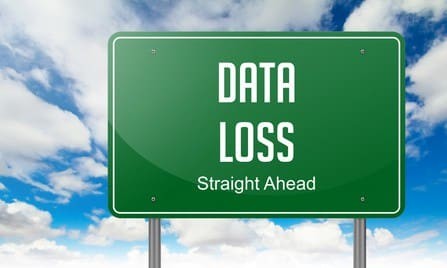 If a file went missing from your computer how quickly could you get it back? Straight away? In an hour? Never?
If a file went missing from your computer how quickly could you get it back? Straight away? In an hour? Never?
It is worthwhile remembering that it is not “if” such data loss will happen to you, but “when”. Losing files and digital data is bound to happen at one time or another to all of us. There are simple things like misfiling it, so it’s somewhere, but you just cannot locate it. Then there are more complex things, such as the mechanical failure of hard drives or the removal of data by well-meaning staff or suppliers. And that’s all before you even think about what bots or viruses could do…!
Data loss is going to happen to you, so it is best to be prepared.
Four steps to data security
The first thing to do is to have local backups of everything. A good way of doing this is to have a second hard drive for each computer and then for all your files to be “mirrored” to that drive as soon as they are created. One good software solution for this is Syncovery, which works on PCs and Macs. Just set it to mirror one drive to another and then each time you create or change a file, it is reflected in your spare hard drive. If you accidentally delete a file, you can restore it from the spare drive.
Syncovery is also a good tool to have because it can synchronise all your files between your computer and a variety of cloud services. That means you can also easily copy all the files you need direct to a cloud backup store. Indeed, that should be your second step to good backup practice.
The third step is to maintain a drive image on a regular basis. Something like Macrium Reflect can do this for you. Just set it and forget it. You can create the drive image onto DVD or to a separate hard disk.
The fourth step is a paper backup. A paper-based listing of where you keep your files – including password hints and login details – so that in the event of a technology meltdown you can access your data. Many people set up good backup systems, but then have no idea on how to restore things because all the information they need to get back their files is lost with the other data.
So, will you cry?
If you lose data, you may well cry. You will be frustrated, that’s for sure and possibly angry. However, there are bound to be psychological impacts of a poor backup strategy. Often, these can be not what you expect. You lose data, you get angry and grumpy, you have to spend more time at work sorting it out, and that puts a strain on home relationships. All because you did not have a good backup system in place.
Alternatively, you can have a good, reliable backup system that you know works, giving you peace of mind – as well as the clear business continuity it provides. But it is worthwhile considering the fact that protecting your data also protects your brain.

